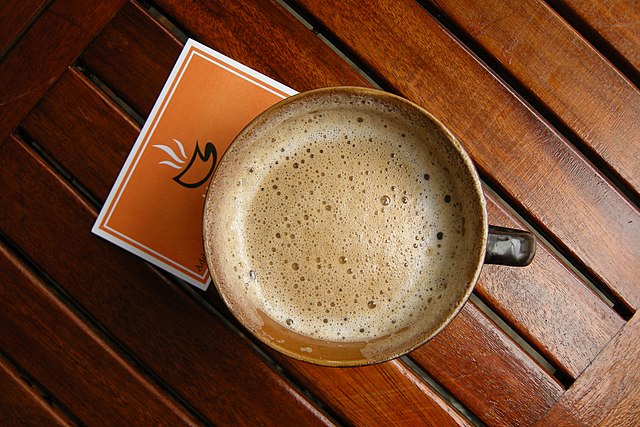By Chiara Suprani
While local consumption of the beverage continues to increase, regional producers from Vietnam are concerned about the looming coffee crush that threatens to send prices soaring
Asia is the renowned home of plantations and tea rituals, yet according to the International Coffee Organization, the Asia-Oceania region has increased its coffee consumption by 1.5 percent over the past five years, exceeding by one percentage point the growth in consumption in Europe (which remains higher for the time being) over the same period. For some, the issue can be traced to the rise of the middle class, which would be more inclined to explore new trends and consume Western products. For others, however, the trend would go far beyond mere curiosity: it is such a cultural issue that it causes consumers to seek out and drink on local "beans." Not only that, Southeast Asian people see coffee as colonial heritage. In the 19th century, France harvested seeds known as "cherry buds", due to their crimson colour, in Vietnam, and the Netherlands exported large quantities from Indonesia.
Although the culture of coffee, especially the one of the most prized variety of arabica coffee, is known to be linked to the economies of South America, yet floods in Colombia and poor 2021 harvests from Honduras, Guatemala and Nicaragua have in the past two years redirected the origin of supplies.
For some countries in the Association of Southeast Asian Nations, the past few years have been propitious for the coffee trade. Vietnam as of January 2022 was the second largest coffee exporting country in the world, after Brazil. Indonesia from February 2021 to January 2022 exported seven million 60 kg bags of coffee, surpassing Uganda. While the Philippines, which is also among the exporting countries, is the second largest coffee importing country in ASEAN from 2017 to 2021, the eighth in the 2020/21 period.
Vietnam's "cherry blossoms"
In Vietnam, coffee is also ingrained in the country's culture. In the lexicon, bribes are called "coffee money" while socializing is called going to "ca phe ca phao." Famous for its Robusta variety of coffee, Vietnam exported 1.24 million tons of coffee worth $2.82 billion during the opening eight months of the year, representing increases of 14.7 percent in volume and 39.6 percent in value over the same period the previous year. Still, Hanoi worriedly looks at the outlook for the upcoming months. Rising global prices are already affecting the sector, which will see a decline in coffee seed production next year. Local availability will be reduced, with farmers' withholdings plummeting from 13 percent to 2 percent of their annual production. The collapse in supply of the Robusta variety, which accounts for 90 percent of domestic production, has pushed prices in Dak Lak province, which covers one-third of the country's crop, up to 49,100 Vietnamese dong (US$2.10) per kilogram. A record-breaking price.
Indonesia: the coffee mecca
Indonesia is the second largest coffee-producing country in Asia. Iman Kusumaputra is one of the co-founders of Kopikalyan, Indonesia's answer to Starbucks, and he pointed out in an interview with Nikkei that "if production used to be mainly export-oriented, now farmers keep the best quality coffee for themselves." In addition, Indonesia's framework as the world's largest archipelago nation, allows the country to grow many varieties of coffee, each reflecting the characteristics of the island where it is planted. Another aspect that has likely contributed to Indonesia's coffee consumption rising to 5 million 60 kg bags in 2020/21 is the search for a non-alcoholic beverage to share in social moments in a predominantly Muslim country.
Thai weed cafes
On June 8 this year, the Thai government declared that it is no longer illegal to grow and trade marijuana and hemp products. It had been expected that this move, in a conservative, Buddhist country, would have limited consequences for the trade, given the ban on recreational use and production of drugs with a THC level greater than 0.2 percent. In recent months, however, in an effort to reactivate post-pandemic tourism, numerous weed cafes have sprung up around Bangkok. In 20/21, coffee consumption in Thailand amounted to nearly 1.5 million 60kg bags. The relaxation of anti-Covid measures along with the legalization of marijuana has incentivized young domestic entrepreneurs to open new establishments that could combine these two sectors.
It remains to be seen whether the forecast for September will prove correct. If so, in countries such as Germany, the United States and Italy, among the main importers of coffee from Vietnam, prices will soar. And the availability of the product will decrease also given the growing trend of domestic coffee consumption in Southeast Asian countries.






